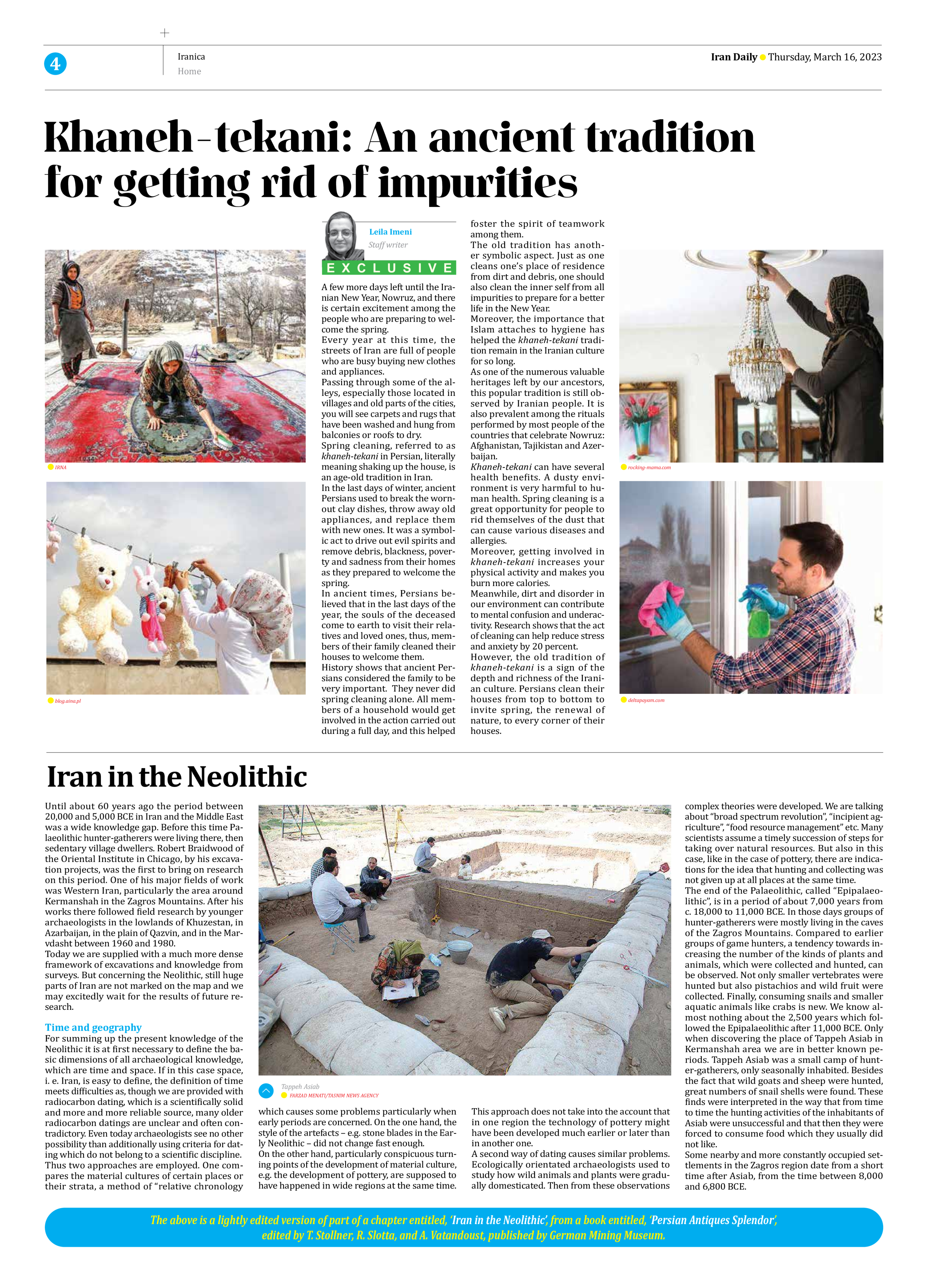
Khaneh-tekani: An ancient tradition for getting rid of impurities
Leila Imeni
Staff writer
A few more days left until the Iranian New Year, Nowruz, and there is certain excitement among the people who are preparing to welcome the spring.
Every year at this time, the streets of Iran are full of people who are busy buying new clothes and appliances.
Passing through some of the alleys, especially those located in villages and old parts of the cities, you will see carpets and rugs that have been washed and hung from balconies or roofs to dry.
Spring cleaning, referred to as khaneh-tekani in Persian, literally meaning shaking up the house, is an age-old tradition in Iran.
In the last days of winter, ancient Persians used to break the worn-out clay dishes, throw away old appliances, and replace them with new ones. It was a symbolic act to drive out evil spirits and remove debris, blackness, poverty and sadness from their homes as they prepared to welcome the spring.
In ancient times, Persians believed that in the last days of the year, the souls of the deceased come to earth to visit their relatives and loved ones, thus, members of their family cleaned their houses to welcome them.
History shows that ancient Persians considered the family to be very important. They never did spring cleaning alone. All members of a household would get involved in the action carried out during a full day, and this helped foster the spirit of teamwork among them.
The old tradition has another symbolic aspect. Just as one cleans one’s place of residence from dirt and debris, one should also clean the inner self from all impurities to prepare for a better life in the New Year.
Moreover, the importance that Islam attaches to hygiene has helped the khaneh-tekani tradition remain in the Iranian culture for so long.
As one of the numerous valuable heritages left by our ancestors, this popular tradition is still observed by Iranian people. It is also prevalent among the rituals performed by most people of the countries that celebrate Nowruz: Afghanistan, Tajikistan and Azerbaijan.
Khaneh-tekani can have several health benefits. A dusty environment is very harmful to human health. Spring cleaning is a great opportunity for people to rid themselves of the dust that can cause various diseases and allergies.
Moreover, getting involved in khaneh-tekani increases your physical activity and makes you burn more calories.
Meanwhile, dirt and disorder in our environment can contribute to mental confusion and underactivity. Research shows that the act of cleaning can help reduce stress and anxiety by 20 percent.
However, the old tradition of khaneh-tekani is a sign of the depth and richness of the Iranian culture. Persians clean their houses from top to bottom to invite spring, the renewal of nature, to every corner of their houses.







